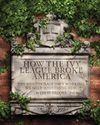
In May 2020, Darnella Frazier, a 17-year old with a smartphone camera, documented the killing of George Floyd by a Minneapolis police officer. Most Americans who watched the video of Floyd begging for his life, as Officer Derek Chauvin kneeled on his neck, saw a human being. Robert Kroll did not. The head of the Police Officers Federation of Minneapolis saw a “violent criminal” and viewed the protests that followed as a “terrorist movement.” In a letter to union members, he complained that Chauvin and the three other officers involved in Floyd’s death had been “terminated without due process.”
Kroll’s response was typical. In the apocalyptic rhetoric of police-union leaders, every victim of police misconduct is a criminal who had it coming, and anyone who objects to such misconduct is probably also a criminal, and, by implication, a legitimate target of state violence. Due process is a privilege reserved for the righteous—that is, police officers who might lose their jobs, not the citizens who might lose their lives in a chance encounter with law enforcement.
In the Floyd case, the effectiveness of this rhetoric, so powerful in years past, was blunted by what Americans could see with their own eyes. That eight-minute-46-second video became the spark for what were reportedly the largest civil-rights protests in the history of the United States. It also led to the trial and conviction of Chauvin and the indictment of the three officers who stood by while their colleague committed murder.
この記事は The Atlantic の July - August 2021 版に掲載されています。
7 日間の Magzter GOLD 無料トライアルを開始して、何千もの厳選されたプレミアム ストーリー、9,000 以上の雑誌や新聞にアクセスしてください。
すでに購読者です ? サインイン
この記事は The Atlantic の July - August 2021 版に掲載されています。
7 日間の Magzter GOLD 無料トライアルを開始して、何千もの厳選されたプレミアム ストーリー、9,000 以上の雑誌や新聞にアクセスしてください。
すでに購読者です? サインイン

The Dark Origins of Impressionism
How the violence and deprivation of war inspired light-filled masterpieces

The Magic Mountain Saved My Life
When I was young and adrift, Thomas Manns novel gave me a sense of purpose. Today, its vision is startlingly relevant.

The Weirdest Hit in History
How Handel's Messiah became Western music's first classic

Culture Critics
Nick Cave Wants to Be Good \"I was just a nasty little guy.\"

ONE FOR THE ROAD
What I ate growing up with the Grateful Dead

Teaching Lucy
She was a superstar of American education. Then she was blamed for the country's literacy crisis. Can Lucy Calkins reclaim her good name?

A BOXER ON DEATH ROW
Iwao Hakamada spent an unprecedented five decades awaiting execution. Each day he woke up unsure whether it would be his last.

HOW THE IVY LEAGUE BROKE AMERICA
THE MERITOCRACY ISN'T WORKING. WE NEED SOMETHING NEW.

Against Type
How Jimmy O Yang became a main character

DISPATCHES
HOW TO BUILD A PALESTINIAN STATE There's still a way.